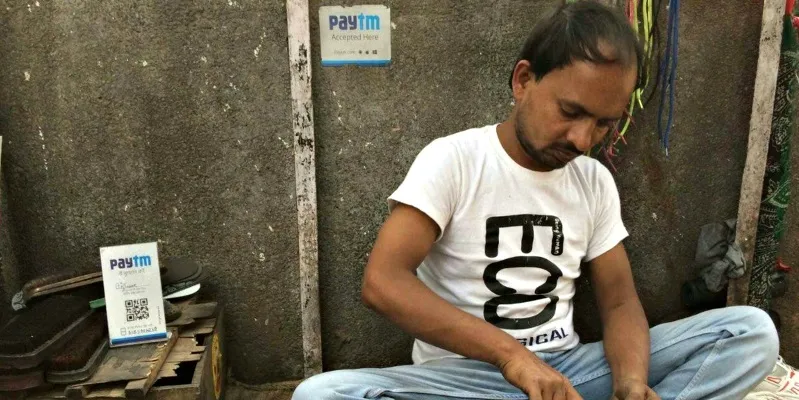Here's what will happen to your Paytm wallet as it merges with its payment bank
On Monday, One97 Communications, the parent company of digital payments company Paytm, issued a public notice that it would be transferring its wallet business, after necessary approvals, to the newly-incorporated Payment Bank entity.
Last year, the RBI had issued in-principle licence for payment banks to Vijay Shekhar Sharma, who holds 51-percent stake in the joint entity. The entity now is in process of obtaining the final licence from RBI to start operations.
It was reported that Sharma had made an Rs 112-crore investment for his majority stake in the payment bank.
This new announcement also spells a clear split between Paytm’s e-commerce business and its payments arm.

What does this mean for you?
As a part of the merger, a customer’s Paytm wallet will now move to the Paytm Payments Bank Ltd., in the same capacity.
So if Paytm doesn’t receive any communication from the user before December 21, 2016, each user will have a bank account with Paytm?
In an e-mail response to YourStory, Paytm said,
"This is just a transfer of ownership of wallet to a new company called Paytm Payments Bank Ltd. Once we launch the bank, you will be given an option to open a separate bank account with us."
For customers having a KYC wallet (store up and transaction limit of Rs 1 lakh), it will get transferred as a KYC wallet, and for customers who have a minimum detail KYC wallet (one with only your phone number registered), it will get transferred as a minimum detail KYC wallet.
Further, in the public notice, Paytm also gave the option to customers to enroll out if they wish to by mailing at [email protected] or logging into paytm.com/care and redeeming balances by a one-time bank transfer by specifying the bank details.
If failing to give bank details, the customer wouldn’t be able to transact with the new Paytm Payments bank wallet until they submit their bank details.
But according to Paytm,
"Your money is absolutely safe in the Paytm Wallet. It is always yours and you will never lose it. If you have any balance in your current Paytm Wallet, it will reflect in your new Paytm Payments Bank Wallet."
The 'enrolled-out' customer cannot transact with that new Payments Bank wallet money until they transfer that money to their bank account, says the notice.
If your wallet has been inactive for the last six months and has zero balance, it won’t be transferred to the Paytm Payments Bank Wallet unless you specifically give consent for the same while logging into the app, web or by e-mail.
The above changes and transfers aren’t applicable for individuals whose wallets have been inactive for the last six months and show a zero balance.
While these new changes were to come in due time, Paytm is reportedly aiming to achieve 200 million accounts, across current accounts, savings accounts and mobile wallets, within the first 12 months of launch.
Confirming this, Vijay tweeted,
The race for payment banks seem to be hotting up. In the last week of November, Airtel announced piloting its payment bank in Rajasthan, giving customers opening accounts one minute of talktime on his/her Airtel mobile for every rupee deposited.
However, how these entities plan to make a buck is still a matter of contention.
In an earlier interview, Sanjay Sharma, consumer banking veteran of 25 years, and the co-founder of micro-lending platform AYE Finance, said,
It is true that at smaller markets, the business models which are easy to break even are those involving credit lending. However, RBI has limited the payments banks to just payments. Hence, the next obvious model for them is to take on large volume payments and activities associated around digital payments. But they will only inch to revenues through higher payment transactions and volumes.
Nonetheless, it seems like an obvious step for wallets like Paytm, which might move into categories of additional services (like lending etc., depending on the RBI opening regulations), while enriching consumer experiences.
But for the moment, what seems to be luring customers is the high rates of interest for the savings stored in the wallet as well as a cash-out feature from these wallets and payment banks.
(Updated with Paytm's inputs)







